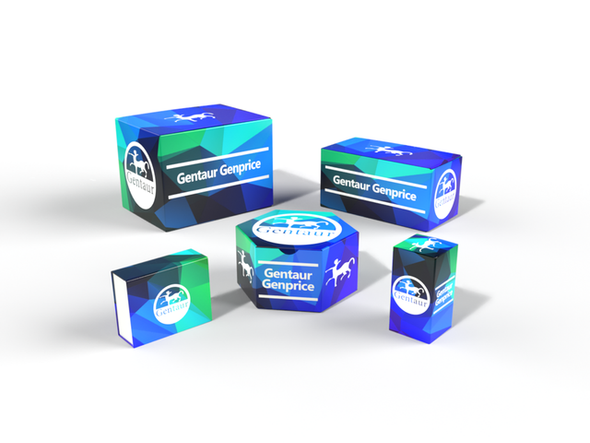740
Human Glutamine-rich protein 2 (QRICH2) ELISA Kit | AE24852HU
- SKU:
- 740-AE24852HU
- Availability:
- Usually ships in 5 working days
Description
Human Glutamine-rich protein 2 (QRICH2) ELISA Kit | AE24852HU | Gentaur UK, US & Europe Distribution
Species Reactivity: Human (Homo sapiens)
Abbreviation: QRICH2
Alternative Name: DKFZp434P0316;
Application: ELISA
Range: Request Information
Sensitivity: Request Information
Intra-Assay: ≤5.3%
Inter-Assay: ≤10.7%
Recovery: 0, 88
Sample Type: Serum, Plasma, Other biological fluids
Detection Method: Sandwich
Analysis Method : Quantitive
Test Principale: This assay employs a two-site sandwich ELISA to quantitate QRICH2 in samples. An antibody specific for QRICH2 has been pre-coated onto a microplate. Standards and samples are pipetted into the wells and anyQRICH2 present is bound by the immobilized antibody. After removing any unbound substances, a biotin-conjugated antibody specific for QRICH2 is added to the wells. After washing, Streptavidin conjugated Horseradish Peroxidase (HRP) is added to the wells. Following a wash to remove any unbound avidin-enzyme reagent, a substrate solution is added to the wells and color develops in proportion to the amount of QRICH2 bound in the initial step. The color development is stopped and the intensity of the color is measured.
Product Overview: RICH2 contains 1 CARD domain. Glutamine is one of the 20 amino acids encoded by the standard genetic code. It is not an essential amino acid. Its side-chain is an amide formed by replacing the side-chain hydroxyl of glutamic acid with an amine functional group. Therefore, it can be considered the amide of glutamic acid. Caspase activation and recruitment domains (CARDs), are interaction motifs found in a wide array of proteins, typically those involved in processes relating to inflammation and apoptosis. These domains mediate the formation of larger protein complexes via direct interactions between individual CARDs. CARD domains are found on a strikingly wide range of proteins, including helicases, kinases, mitochondrial proteins, caspases, and other cytoplasmic factors.
Stability: The stability of ELISA kit is determined by the loss rate of activity. The loss rate of this kit is less than 5% within the expiration date under appropriate storage condition. The loss rate was determined by accelerated thermal degradation test. Keep the kit at 37°C for 4 and 7 days, and compare O.D.values of the kit kept at 37°C with that of at recommended temperature. (referring from China Biological Products Standard, which was calculated by the Arrhenius equation. For ELISA kit, 4 days storage at 37°C can be considered as 6 months at 2 - 8°C, which means 7 days at 37°C equaling 12 months at 2 - 8°C) .






